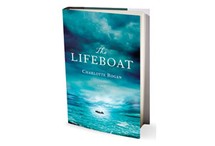
Photo: Philip Friedman/Studio D
1 of 18
The Lifeboat
By Charlotte Rogan
288 pages;
Reagan Arthur
Grace Winter is a survivor. Whether adrift on the Atlantic in a leaky, overcrowded vessel or on trial for murder, Grace, the narrator of Charlotte Rogan's riveting debut novel, The Lifeboat (Reagan Arthur), knows how to take care of herself. In 1914 she's traveling on a luxury liner with her husband when the ship begins to sink. Henry gets his beloved wife onto a lifeboat and disappears into the chaos. The novel unfolds as 22-year-old Grace, now in prison in Boston, recalls her three-week ordeal at sea, including the events that led to her being accused of murder. Grace remains unemotional, despite the often horrifying details. She concludes, for example, that if another passenger "hadn't beaten people away from the side of our boat, I would have had to do it myself." We get occasional glimpses of Grace's previous life; facing a future of servitude after her family lost all its money, she schemed to steal wealthy Henry from his fiancée. And we see her in court, cast as the frightened damsel facing an all-male jury. But the narrative stays focused mostly on her experience in the boat, the tension deliciously building as the passengers grow hungrier, thirstier, and more desperate. The lifeboat is, of course, a familiar metaphor for ethical dilemmas. But Grace is not so easily defined. While not one to agonize over issues of morality, she is neither evil nor innocent. Rather, she is blindingly pragmatic; as she says in court, "It did not occur to me that I might have to sacrifice myself."
— Karen Holt


